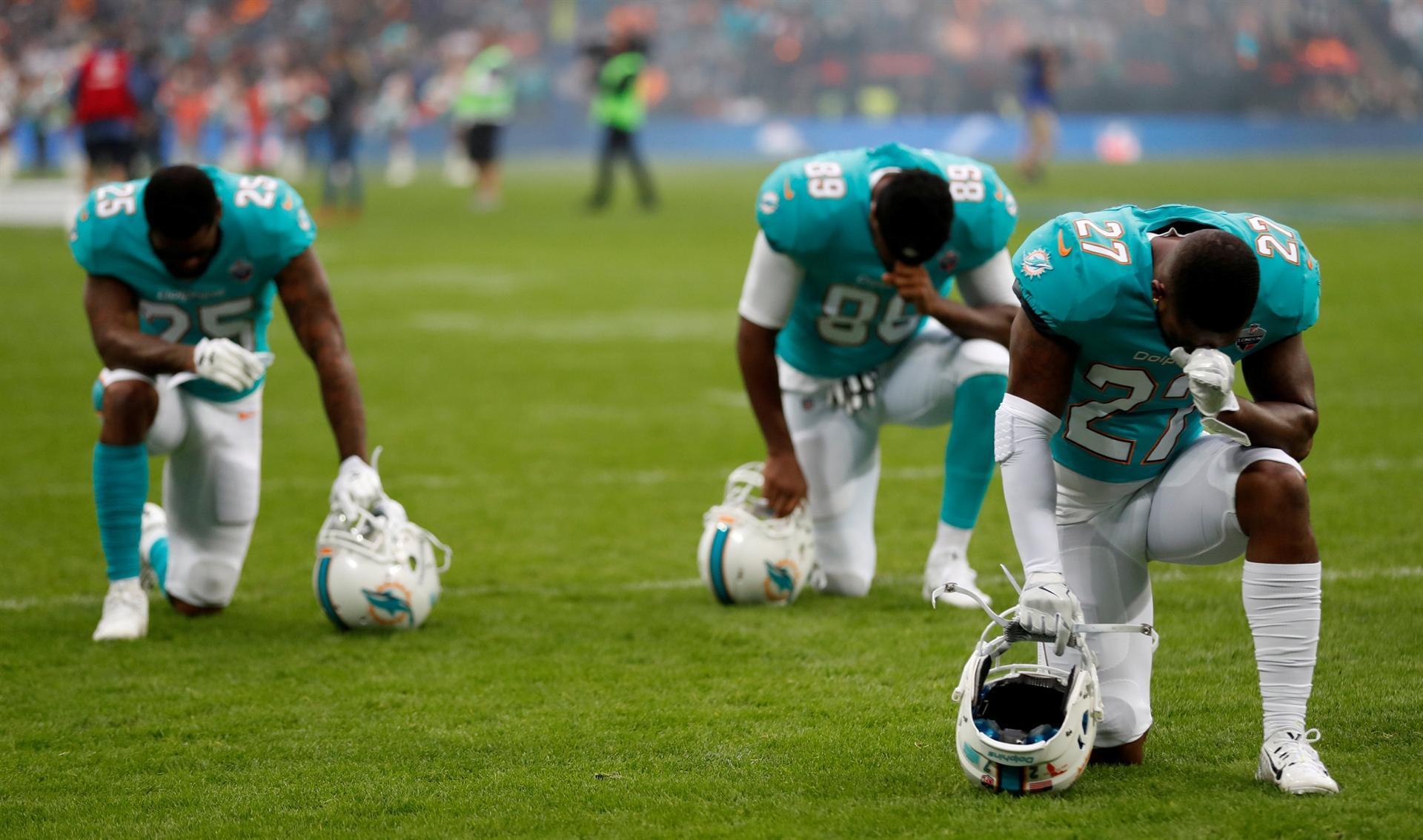
The NFL kicks off its new season shrouded in trepidation on Sept. 10 as America's most popular sport grapples with the new realities of life in the age of COVID-19.
An array of carefully crafted safety protocols designed to mitigate the threat of coronavirus face their first serious test when the reigning Super Bowl champion Kansas City Chiefs host the Houston Texans.
It marks the start of a five-month campaign that is scheduled to culminate with the Super Bowl next February in Tampa, Florida, one of the states worst affected by the pandemic which has claimed around 190,000 American lives.
Unlike sports such as basketball and ice hockey, which returned to play by basing multiple teams in a single location, the NFL season is taking place with teams playing at their home stadiums.
For the most part, those stadiums will be empty. Of the 32 teams in the NFL, 26 say games will take place without spectators. Six teams, including the Chiefs, say they will allow a limited number of fans into each game.
COVID-19 has already upended parts of the NFL calendar.
The NFL Draft due to take place in Las Vegas in April was canceled and conducted virtually, while the entire slate of pre-season games due to start in August was also scrapped.
Players meanwhile have been undergoing daily COVID-19 testing at pre-season training camps which have seen squads operate in reconfigured locker rooms to allow for social distancing between teammates.
So far, the safety measures put in place have yielded encouraging results. No team has suffered a major outbreak of COVID-19.
In its most recent set of test results covering the period Aug. 30-Sept. 5, out of 44,510 tests given to 8,349 players and personnel, only eight came back positive.
"We have been really fortunate," NFL Commissioner Roger Goodell said on a conference call with reporters.
"The cases of COVID-19 are very low across the league. It is a testament to the plans but most importantly to the diligence to the players, the teams and their staffs.
"I think the big thing for us, again, is not to get comfortable. The protocols are working. But we're dealing with a lot of uncertainty here. This is a pandemic that we're still learning about."
The NFL's D-Day arrives this week, however, when the logistical complexities of safely moving small armies of players and support staff all around the country are put to the test for the first time.
Zach Binney, an epidemiologist at Oxford College of Emory University in Atlanta, is optimistic that protocols that have been successful in NFL training camps will be effective on the road.
"If you're adhering to the protocols then they should work just as well on the road as they do at home. On the road you're in a mini-bubble, you're in the hotel, in the stadium and then you're coming back," Binney told AFP.
"I think the test is sticking to the protocols, and that gets harder over time. It's harder to stay vigilant.
"But so far the results have exceeded all expectations. It's been amazing. But it requires constant vigilance. And it can fail at any time."
The risks, in a sport where physical contact is part and parcel of the game, are obvious. Dozens of players have decided it is not a risk worth taking.
Laurent Duvernay-Tardif, who combines being a practicing medical doctor with his career as a lineman for the Kansas City Chiefs, is among several dozen players who have opted to skip the season.
"I cannot allow myself to potentially transmit the virus in our communities simply to play the sport I love. If I am to take risks, I will do it caring for patients," Duvernay-Tardif said in July.
The new season meanwhile will also mark a cultural sea-change in how the NFL's hierarchy views player protests against racial injustice.
Four years ago Colin Kaepernick was widely vilified for his largely lonely kneeling protests against racial injustice.
The former San Francisco 49ers quarterback has not been hired since being released in early 2017.
Yet the tumultuous nationwide protests which erupted across the U.S. following the death of George Floyd in May during his arrest by police forced Goodell and the NFL into a reckoning.
Goodell now admits the league was wrong not to support Kaepernick and accepts that the nature of the quarterback's protests had been mischaracterized as unpatriotic.
"I wish we had listened earlier, Kap, to what you were kneeling about and what you were trying to bring attention to," Goodell said in a recent interview.
As well as allowing players to protest peacefully, the NFL plans a number of initiatives to demonstrate its support for the Black Lives Matter movement.
End zones will bear the words "End Racism" and "It Takes All of Us," while players will be allowed to wear helmet stickers featuring the names of victims of racism.
The song "Lift Every Voice and Sing," often described as the black national anthem, will be played before every game this weekend.